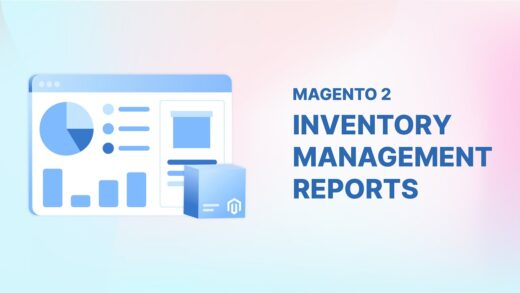Overview :
1. Prioritization and Resource Allocation: The foundation of BSM lies in setting clear financial priorities. Organizations must define their strategic goals and understand the importance of different cost centers, allowing them to allocate resources efficiently.
2. Budget Management: A well-structured budget is essential in BSM. It provides a roadmap for financial decisions, aligning expenses with strategic objectives and facilitating financial control.
3. Expense Monitoring and Tracking: BSM mandates real-time monitoring and tracking of expenses. This practice allows organizations to gain insights into their spending patterns, identify areas for improvement, and prevent financial waste.
4. Vendor and Supplier Relationship Management: Effective vendor relationships are critical to Spend management strategy. Organizations must negotiate favorable terms with suppliers, assess vendor performance, and seek the best value for their spending.
5. Technology Integration: Technology plays a pivotal role in modern business, and BSM is no exception. Integrating advanced software solutions enables real-time expense data, automated approval processes, and streamlined budget tracking.
6. Data-Driven Decision Making: BSM leverages data analysis and reporting to enable organizations to make informed decisions about spending. Access to accurate financial data is crucial for identifying opportunities for cost savings and resource allocation.
7. Compliance and Risk Management: Adhering to regulatory requirements and managing risks are integral components of BSM. A framework for compliance and risk management helps mitigate financial vulnerabilities and maintain stability.
Significance of Business Spend Management
In a fast-paced, global business environment, the significance of Business Spend Management cannot be overstated. Several factors contribute to its importance:
1. Cost Control: BSM empowers organizations to control and reduce unnecessary expenses, leading to significant cost savings. By scrutinizing every expenditure, organizations can avoid financial waste and direct resources more effectively.
2. Resource Optimization: Through Spend management strategy, organizations can align their resource allocation with strategic priorities, promoting growth and profitability. It ensures that resources are directed towards initiatives that drive value.
5. Competitive Advantage: Companies that excel in BSM gain a competitive edge in their industry. They have greater financial health and adaptability, which is crucial in an ever-competitive marketplace.
6. Sustainability: BSM promotes financial sustainability. When resources are allocated efficiently, organizations can maintain their long-term financial health and sustainability, weathering economic storms and adapting to changing market conditions.
Real-World Examples of Business Spend Management
Let’s explore real-world examples of how Business Spend Management has made a significant impact on organizations:
1. Tech Giant’s Vendor Negotiations: A global technology company found that a significant portion of their expenses was tied to vendor contracts. By actively renegotiating terms with key suppliers and improving vendor management practices, they achieved substantial cost savings and better value for their spending.
2. Manufacturing Efficiency: A manufacturing company implemented Business Spend Management by focusing on optimizing their supply chain. By streamlining procurement processes, reducing inventory carrying costs, and minimizing waste, they achieved remarkable cost reductions and increased profitability.
3. Retail Chain’s Expense Tracking: A retail chain realized that many of their stores were incurring unnecessary operating expenses. They adopted BSM to track expenses at the store level in real-time, allowing them to identify areas where cost-saving measures could be applied. The result was improved financial efficiency and a healthier bottom line.
4. Vendor Relationship Optimization
One significant aspect of Business Spend Management and spend management strategy is managing relationships with the vendors and suppliers your organization deals with. This part is crucial because it can directly impact your spending efficiency.
5. Use Technology: BSM uses special software to help you keep track of your spending. It’s like having a helpful assistant to manage your money.
6. Use Data for Decisions: Look at the data to make choices about your spending. This helps you spend your money where it matters most.
7. Follow Rules and Stay Safe: BSM also means following the rules and keeping your money safe. This is important to avoid problems.
FAQs on Business Spend Management
1. What is the primary goal of Business Spend Management?
The primary goal of Business Spend Management is to optimize spending while ensuring efficient resource allocation. It enables organizations to make informed financial decisions, reduce unnecessary expenses, and enhance profitability.
2. How can technology enhance Business Spend Management?
Technology plays a pivotal role in Business Spend Management by providing real-time insights into spending patterns, automating approval processes, and offering streamlined budget tracking. This enables more efficient financial management.
3. What is the role of compliance in Business Spend Management?
Compliance with policies and regulatory requirements is crucial in Business Spend Management. It ensures transparency and accountability in spending practices and helps organizations avoid financial pitfalls.
4. Why is risk management an integral component of Business Spend Management?
Risk management in Business Spend Management helps organizations identify vulnerabilities and take preventive measures. By mitigating financial risks, organizations can maintain stability and resilience in a volatile business environment.
5. Is Spend management strategy relevant to all industries?
Yes, Spend management strategy is applicable to organizations across various industries. While specific practices may differ, the core principles of controlling expenses, optimizing resource allocation, and ensuring compliance are universally valuable.
– Negotiate Smartly: When working with vendors, negotiate for the best deals. Try to get favorable terms and prices that suit your budget.
– Evaluate Performance: Regularly assess how well your vendors are performing. Are they delivering what they promised?
The Power of Data-Driven DecisionsEfficient Resource Allocation: Data helps you allocate your resources efficiently. It ensures that every dollar you spend contributes to your organization’s success.
Conclusion :
By optimizing your vendor relationships and embracing data-driven decisions, you can take your Business Spend Management to the next level. These strategies empower you to make the best use of your resources and ensure that your financial decisions are grounded in data and wisdom.






